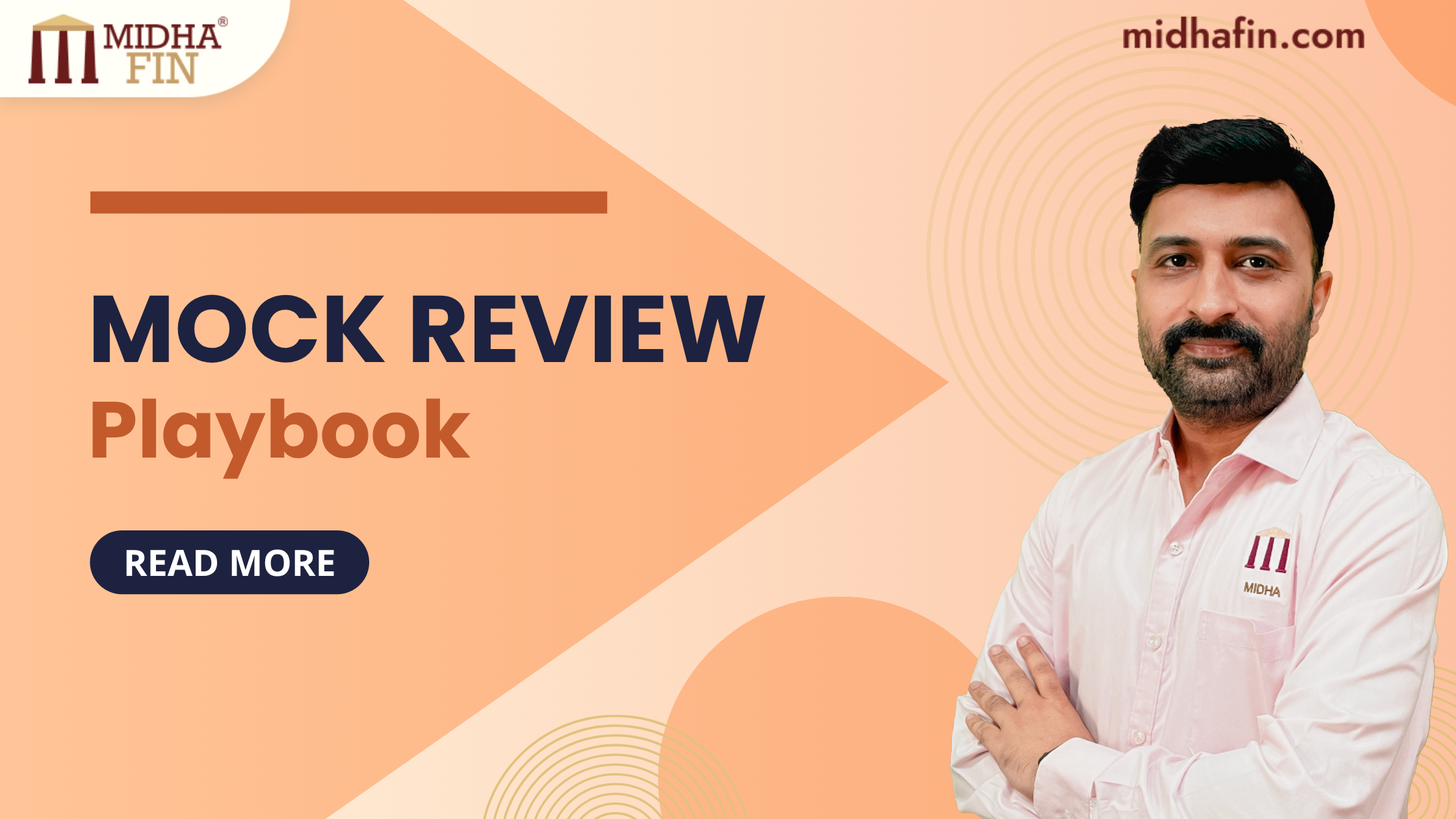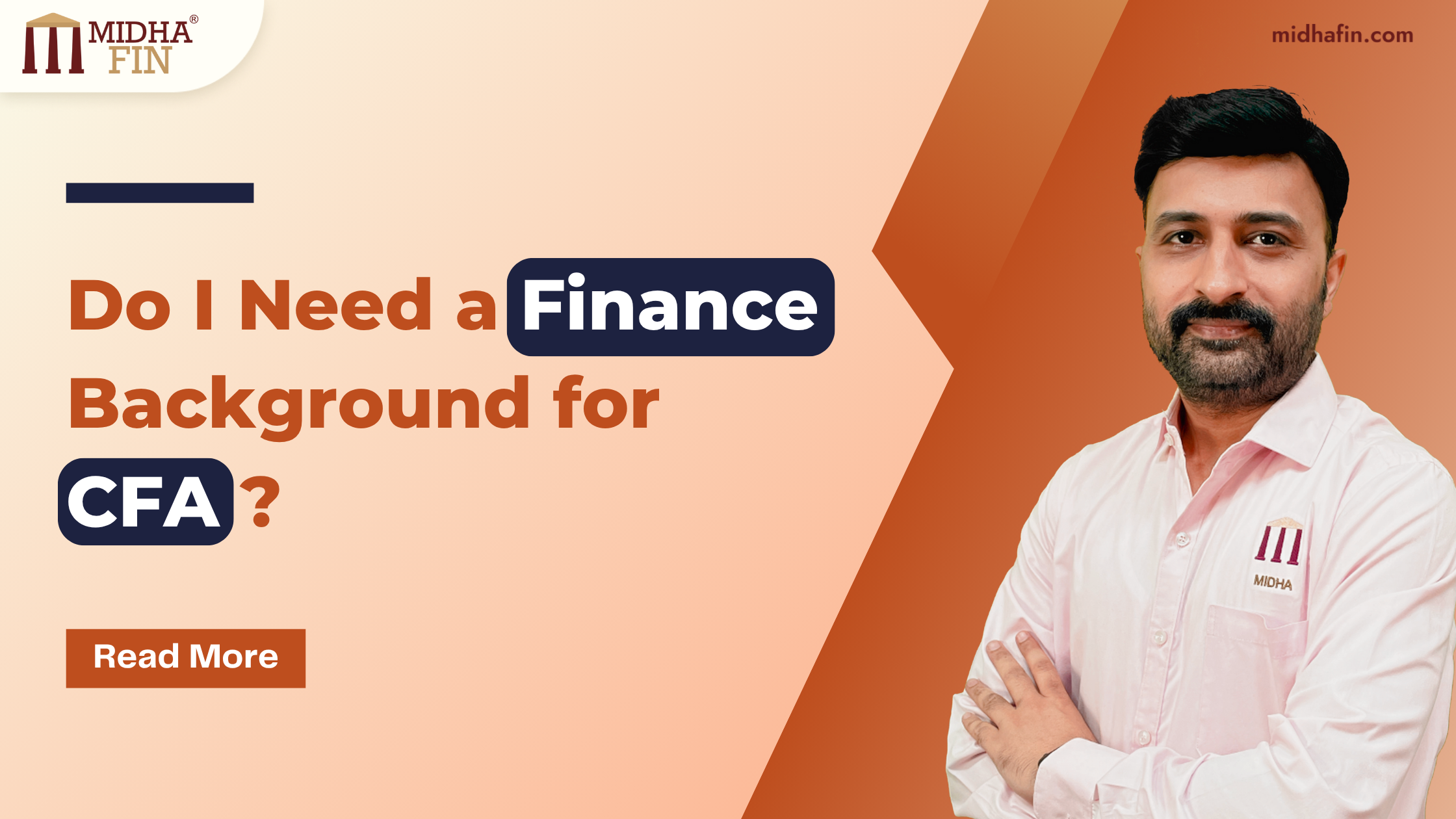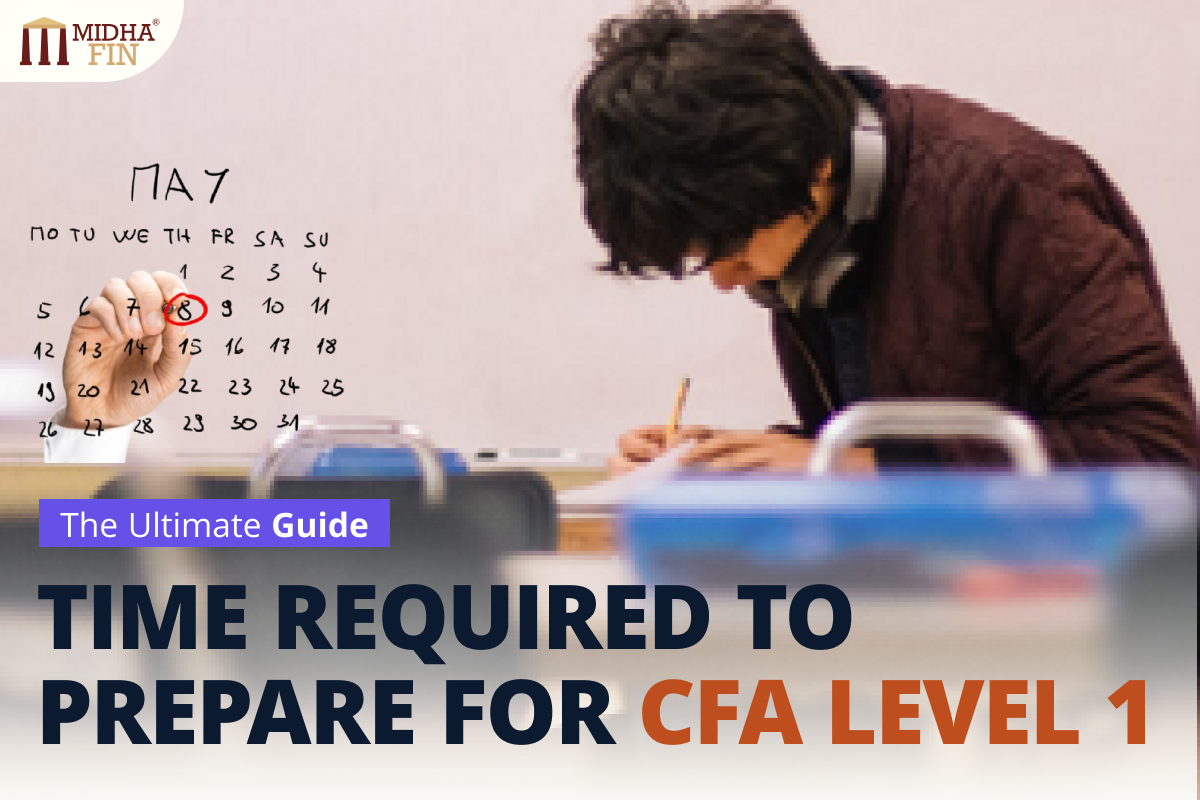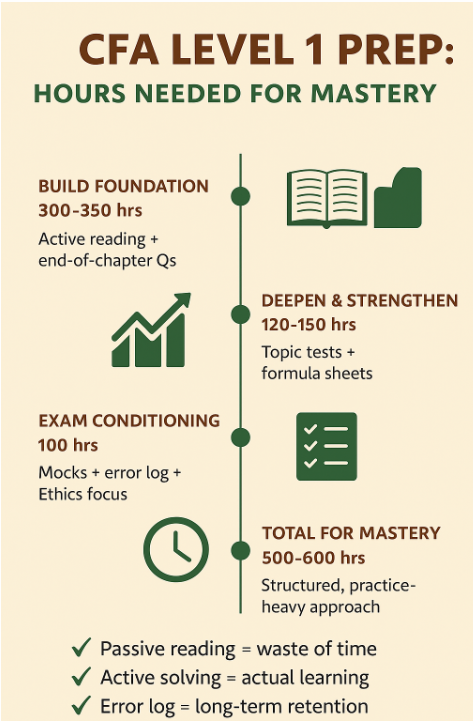Introduction
A mock exam often feels like a judgment on your preparation. You look at the total score, compare it with your expectations, and the anxiety sets in. The truth is different. A mock exam is a diagnostic. It shows how you think under pressure. It shows what you truly understand and what needs reinforcement. When you review a mock the right way, the score becomes the least important part of the process.
Unfortunately, many CFA candidates rush from one mock to the next without a structured review. They hope repetition will lift their scores, yet the same errors appear again. This results in stress, overconfidence in some areas, and blind spots in others.
This playbook gives you a practical routine to review any CFA Level 1 mock. You will learn how to identify patterns, classify your errors, and create a targeted revision plan that actually sticks. Think of this as an operating manual for mock exams. Follow it consistently and you will feel more confident, more organised, and more prepared for exam day.
Mindset First: Score Last, Learning First
When you finish a mock, the instinct is to check the total. Resist that urge. Your score is only a snapshot of one attempt. It does not say anything about your potential. Note it once for reference, then put it aside.
Your real goal is to understand your decisions. Why did you select a particular option. What were you thinking. Where did the reasoning break. What steps were rushed. When you review your thinking rather than only the outcome, you develop exam discipline. This is what separates candidates who improve from candidates who stagnate.
Tell yourself this before every mock review:
The score comes last. The learning comes first.
Phase 1. Set Up a Proper Review Session
Treat your review with the same respect as the mock.
Create a quiet window
Give yourself two to three hours on the same day or the next morning. Reviewing while the thought process is still fresh helps you understand what you attempted to do, not only what you got right or wrong.
Gather your tools
You will need:
- Your marked mock exam.
- Official explanations.
- A simple tracker. Notebook or spreadsheet.
- Your formula sheet or summary notes.
Keep everything in one place. A clean setup prevents distractions.
Define what you want to achieve
Every review should produce three outputs.
- A topic heat map.
- An error classification table.
- A seven day revision plan.
When you review with a clear purpose, you stay focused and finish with actions instead of confusion.
Phase 2. Build a Topic Heat Map
Before you zoom in on individual questions, start with a top down picture.
Tag your mistakes
Go through your mock and label every wrong question by topic.
FRA. Inventory.
Fixed Income. Term structure.
Quant. Sampling.
Equity. Dividend discounts.
Be specific. This helps you find patterns.
Add a short reason tag
Next to each wrong question, add a short code.
- Concept gap.
- Calculation slip.
- Misread.
- Time pressure.
- Guess.
- Procedure error.
Do not overthink. Just label what feels correct.
Summarise the pattern
Now group your accuracy by sections. Ethics. Quant. Economics. FRA. Equity. Fixed Income. Corporate Issuers. Derivatives. Alternatives. Portfolio Management.
Create a table with two numbers for each section.
Total attempted.
Total correct.
You will often notice that two or three areas account for most of your lost marks. These are your immediate targets for the coming week.
This heat map prevents random studying and keeps your focus sharp.
Phase 3. Build an Error Taxonomy That Works
Not all mistakes need the same fix. Your review becomes powerful when you understand the type of error you made.
Common mistake types and how to fix them
Concept gap
You do not know or do not recall the underlying idea.
Fix: Reread only the relevant section. Keep it short. Then solve ten to fifteen targeted questions.
Framework confusion
You know the pieces but cannot connect them.
Fix: Rebuild the structure. Write a decision tree or short summary in your own words.
Procedure error
You understood the concept but executed steps incorrectly.
Fix: Create a three to five step checklist and rehearse it before new questions.
Formula slip
Idea is right. Calculation is wrong.
Fix: Annotate the formula with units and common traps. Then practise slowly with unit checks.
Reading misinterpretation
You missed a keyword or detail.
Fix: Train yourself to underline qualifiers. Annual, nominal, pre tax, post tax, before adjustments, after adjustments.
Time management miss
You spent too long on one difficult question.
Fix: Use strict cutoffs. If you cross ninety seconds without a plan, flag and move on.
Blind guess
Either you ran out of time or had not studied the topic.
Fix: Decide whether it falls within this weeks scope. Not all gaps need immediate fixing.
Over two or three mocks, you will notice patterns. Maybe you misread often. Maybe formulas. Maybe concept clarity. Your taxonomy directs your revision.
Phase 4. Deep Dive the Top Three Problem Areas
Do not try to fix everything. It spreads your attention too thin. Pick the three highest impact areas from your heat map and go deep.
Step 1. Relearn with purpose
Focus on the exact node where your understanding failed. If you missed questions on leases, focus on measurement and impact. Do not reread the entire FRA book.
Step 2. Create a one page note
Write the rules and relationships in your own words. One page only. If it cannot fit on a single page, it is not distilled enough.
Step 3. Run a deliberate practice set
Solve ten to twenty questions on that node. Check your result. If accuracy is below eighty percent, repeat with a new set.
Step 4. Build a trap list
Note phrasing, numbers, or patterns that trick you. Every subject has traps. Once you know them, your accuracy jumps.
This focused cycle saves time and drives retention.
Phase 5. Post Mock Reinforcement Routine
Your brain forgets what it does not revisit. Use a simple reinforcement window.
Within 24 hours
Redo every question you got wrong without looking at explanations. If you still miss it, mark it in red. This makes the concept memorable.
Within 3 days
Attempt ten fresh questions in your weak topics. Keep the sets short.
Within 7 days
Take a mixed thirty to forty five minute quiz that includes your trap topics. Aim for eighty percent or higher.
This rhythm keeps your understanding active and prevents forgetting during the long preparation cycle.
Smart Strategy for Taking Mocks
Review matters, but how you take mocks also affects performance.
Two pass technique
On the first pass, harvest the clean points. Skip anything that feels long or unclear.
On the second pass, return to flagged questions and think more deeply.
This prevents time traps and builds confidence.
Choose a section order and stick to it
Some candidates start with Ethics for calm reading. Others start with their strongest section to gain early momentum. Choose what suits your mind and use the same plan for all mocks. Consistency builds rhythm.
Micro cutoffs
You have roughly ninety seconds per question on average. Do not exceed that on the first pass. When your timer crosses ninety seconds and you still have no plan, move on.
Simulate exam conditions
Use the same calculator. Same water bottle. Same scratchpad style. Same break pattern. Reduce surprises on exam day.
Turning the Review into a Weekly Plan
When the review is complete, write a one page plan with three parts.
Wins
What went well. What improved. Celebrate small progress.
Fixes
Top three issues with a clear remedy.
Example. FRA. Deferred tax recognition rules. Ten targeted questions on Wednesday.
Rules for the next mock
Two behaviour rules you will follow.
For example. Underline compounding frequency. Move on at ninety seconds.
Pin this one page plan near your study desk. This keeps you honest and consistent.
How Many Mocks Should You Take
There is no magic number. What matters is depth of review, not quantity.
For most Level 1 candidates, five to seven full mocks with proper review is more than enough.
If you begin late, do three to four mocks but review every one with precision. Improvement comes from reflection, not repetition.
Final Takeaway
A mock exam is not a verdict on your readiness. It is a spotlight that reveals how you think under pressure. The review is where learning happens. Build a heat map. Classify your errors. Fix three areas at a time. Reinforce within a week. Refine your exam behaviour. Repeat.
Do this consistently and your scores will rise. More importantly, your decision quality will mature. That is what passes the CFA exam.






